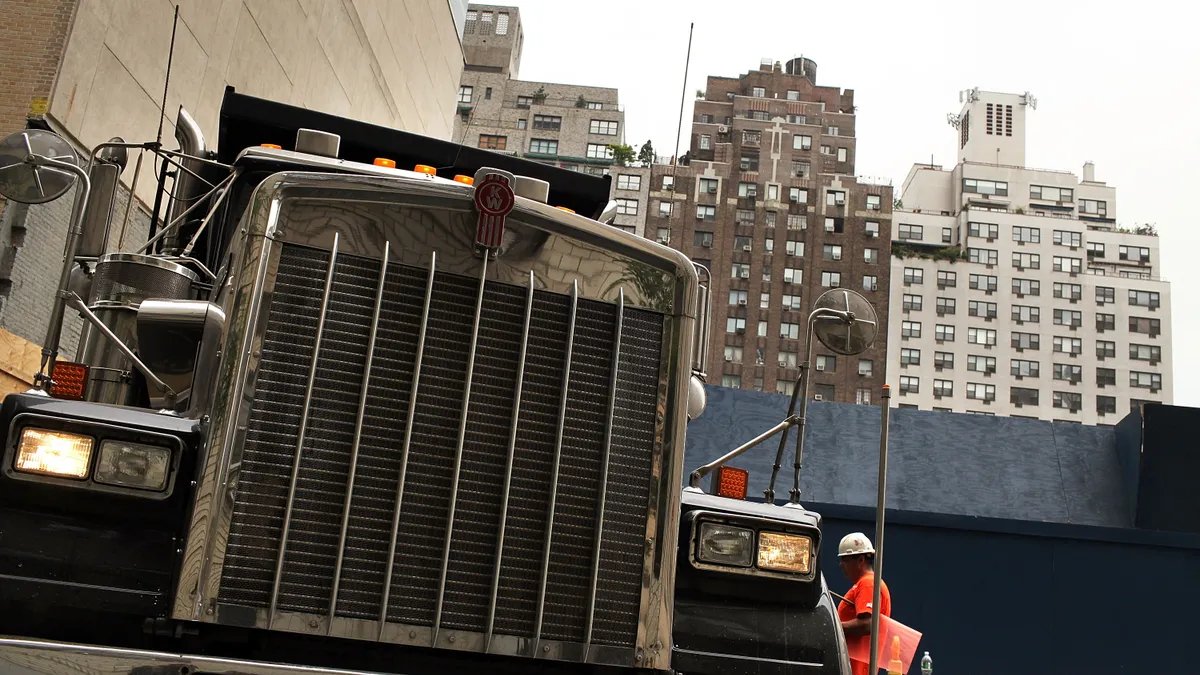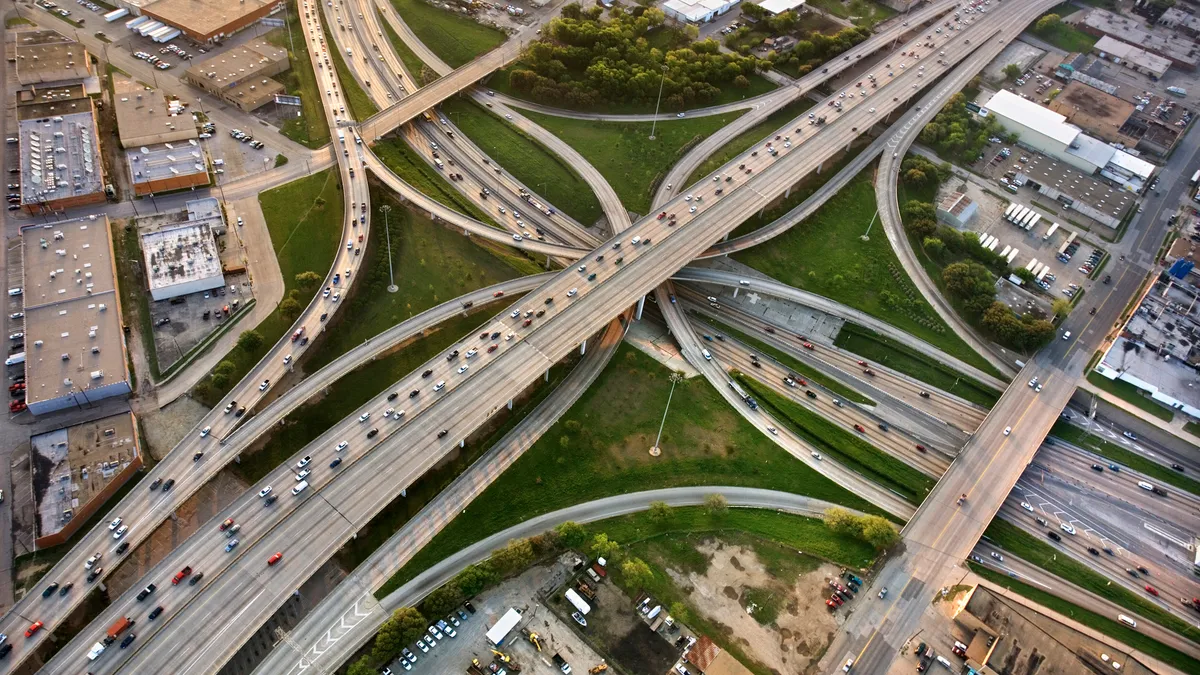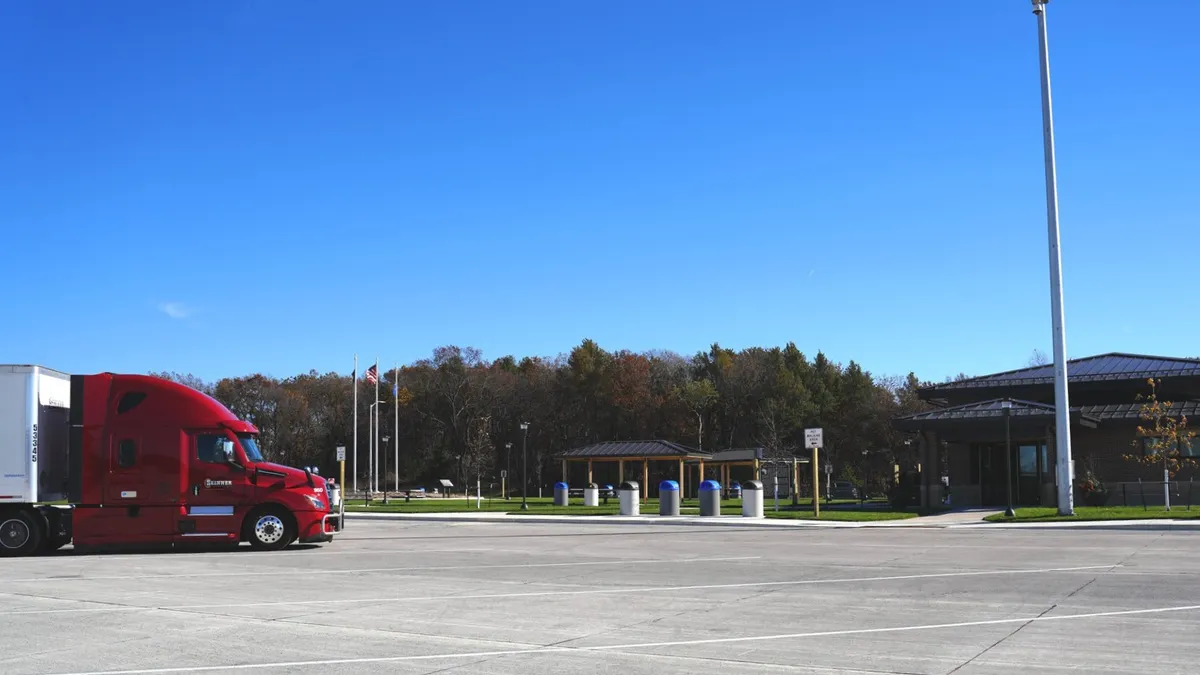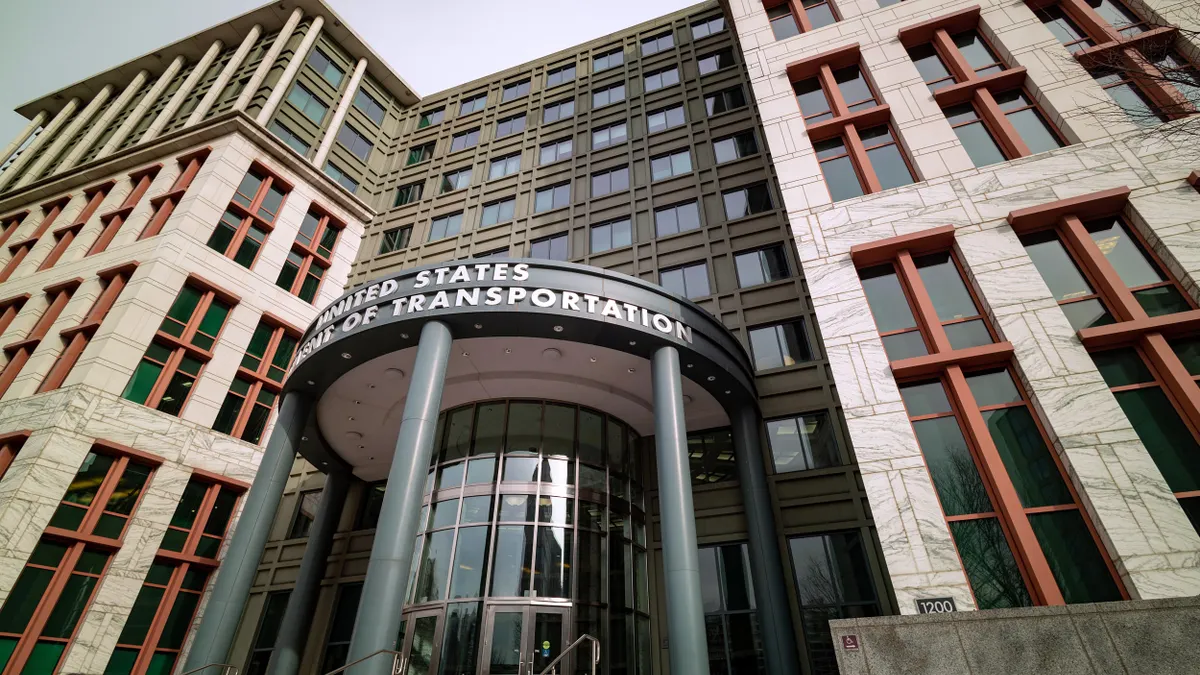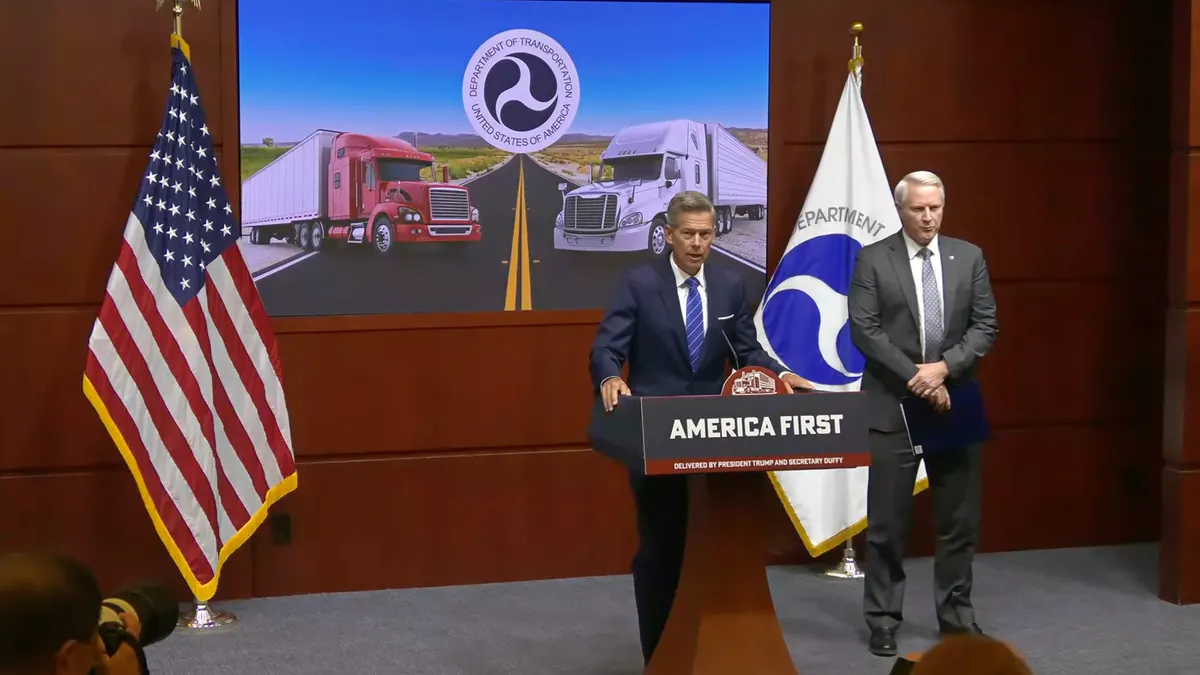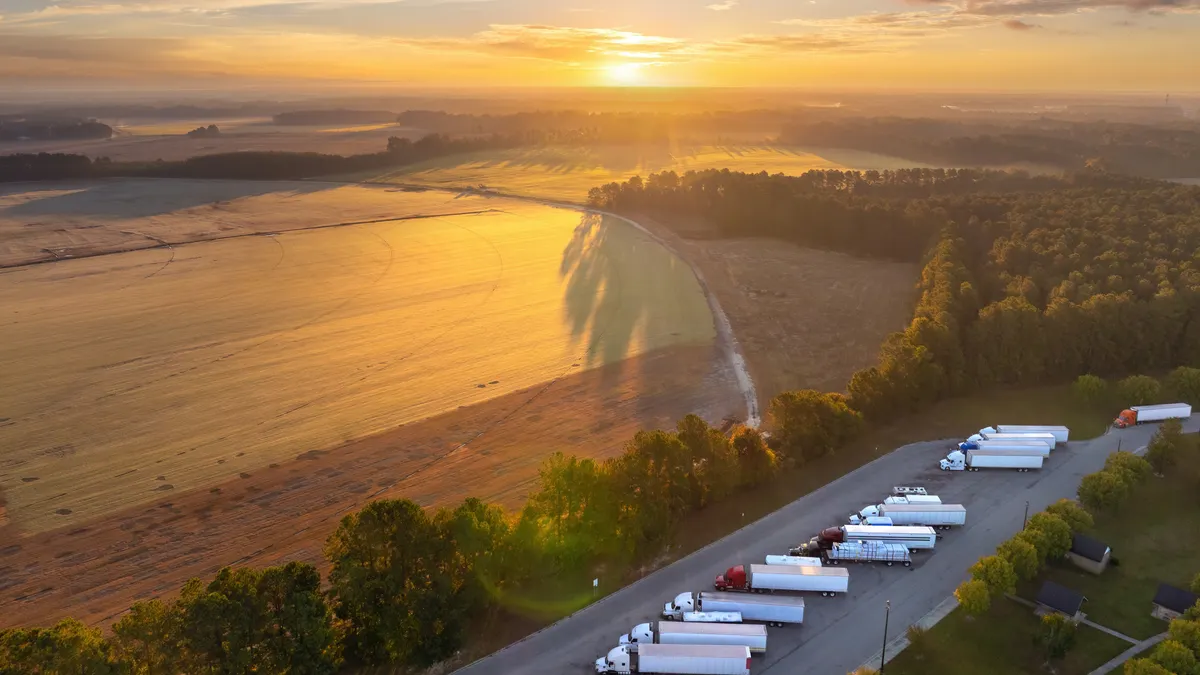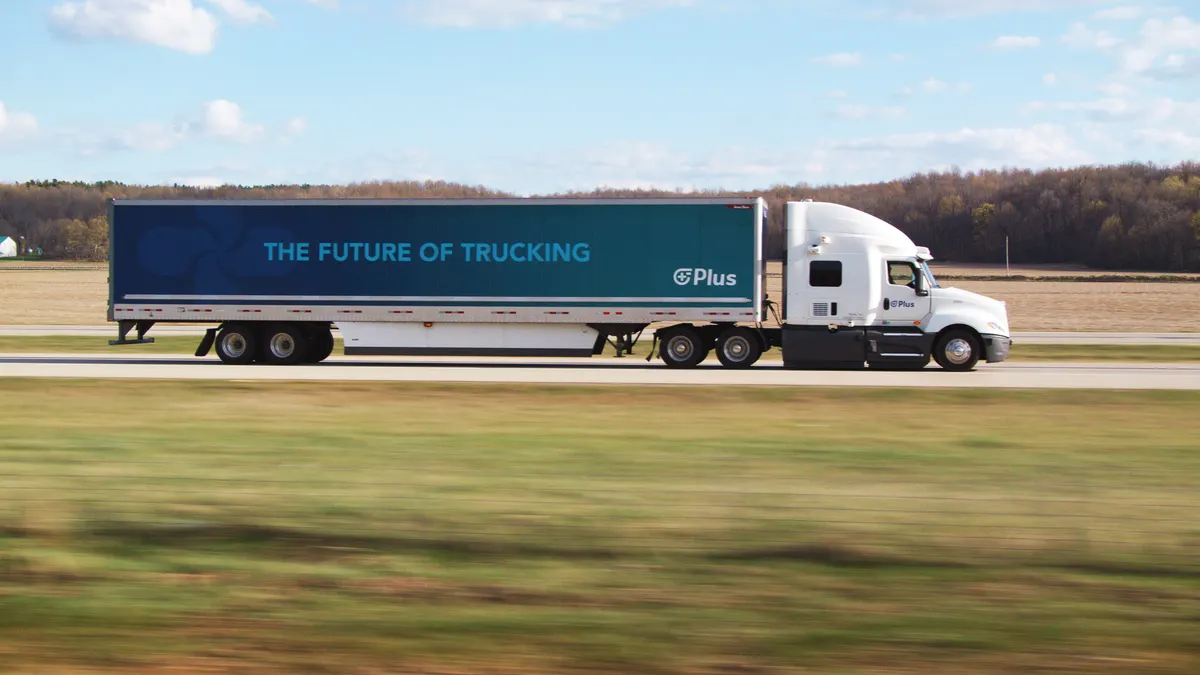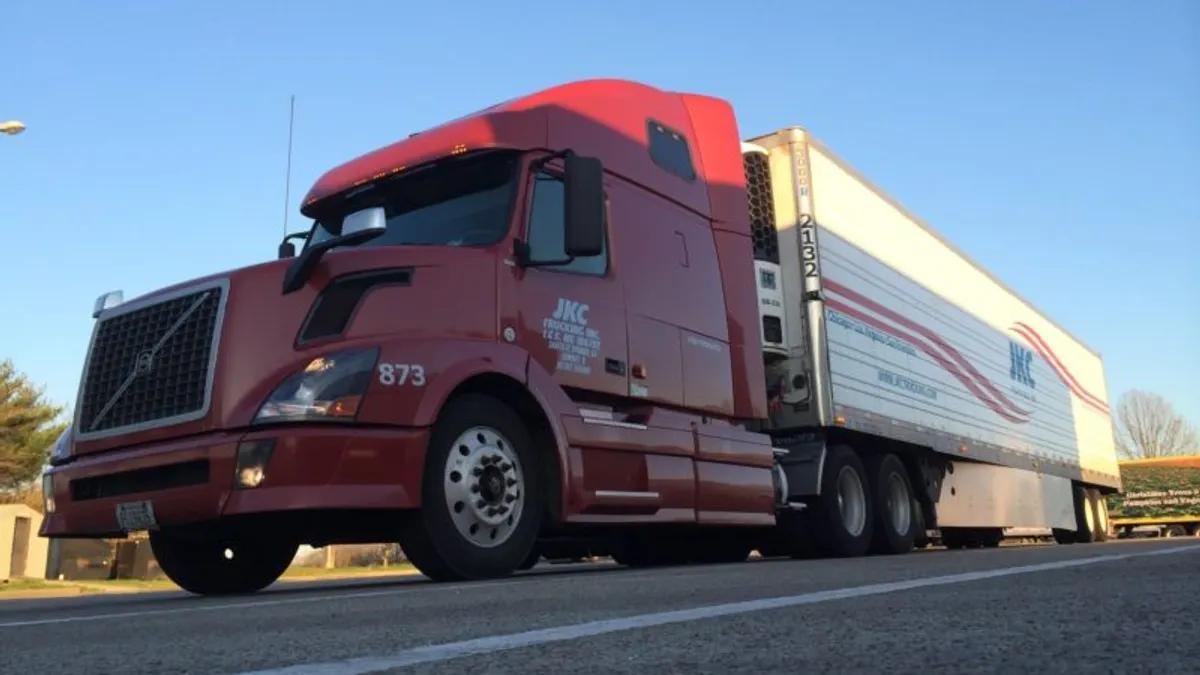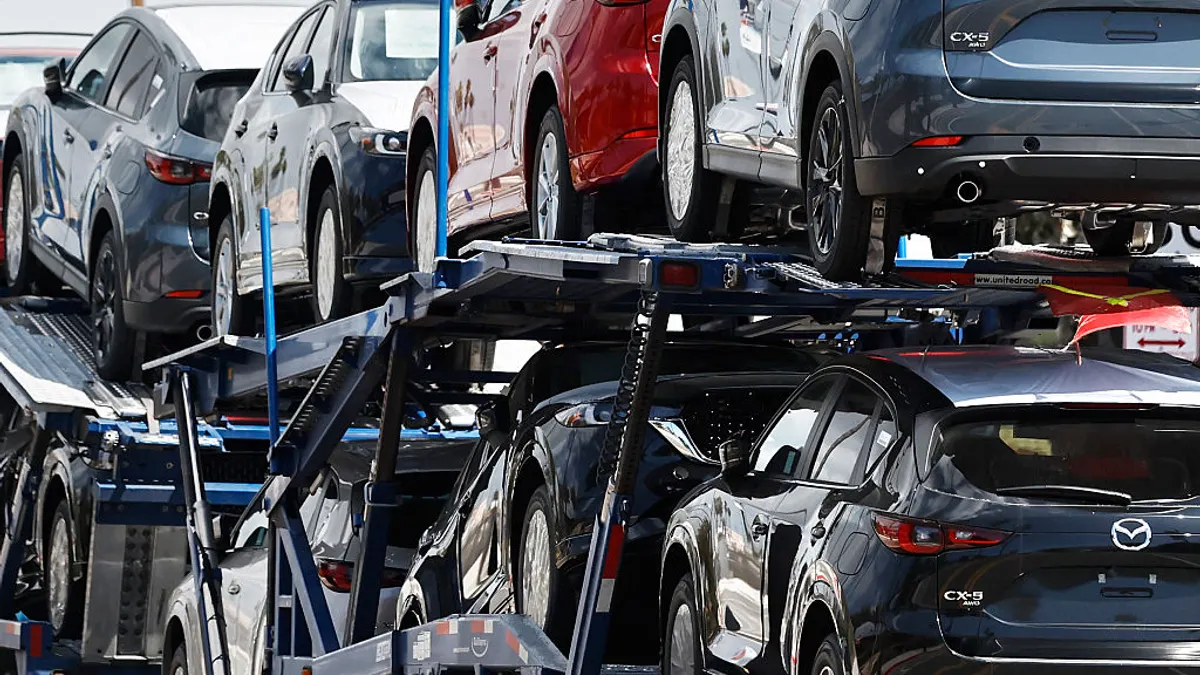In Washington, D.C., infrastructure talks have been back and forth, with various versions of funding bills being proposed across the political spectrum.
On Thursday, President Joe Biden announced support for the $1.2 trillion Bipartisan Infrastructure Framework, after his American Jobs Plan faced opposition. The framework allocates $312 billion to transportation infrastructure, including $109 billion for roads, bridges and "major projects."
Infrastructure was a "hot topic" at the recent Truckload Carriers Association Safety & Security Meeting, said Ryan Camacho, director of product strategy and business development at TMS company Axele.
"It plays into many areas of operation, including safety, compliance and capacity," he said.
It's unclear what the final bill will contain, but transport companies are looking ahead at what the potential outcomes might be and lining up contingencies.
"The move to make right now is to set the pace," said Lawrence Catanzaro, vice president of transportation at Kane Logistics, "especially when it comes to driver recruitment and retention."
A tale of two shortages
By injecting the means to fund infrastructure projects, the push to hire for construction-related jobs will likely dip into the available labor pool for truck drivers. Such a challenge would compound the current driver shortage.
"Historically, we haven't seen an impact on capacity with infrastructure bills," said Catanzaro. "This time is different, however, with an abundance of jobs and a lot fewer people to choose from."
Carriers will need to consider capacity and technology to optimize routing.
"It's a big possibility that, in the short term, the bill could pull drivers away from trucking," said Catanzaro. "But at the same time, I'm not sure it moves the needle all that much. People who work as drivers today do it for the most part because they want to drive. But the biggest issue is the one we already face, which is an aging and retiring workforce."
Still, with competition from construction jobs in the mix, finding those new drivers can certainly become more difficult.
"Carriers will likely have to bend over backwards to attract new drivers," said Camacho. "Whether that looks like increased pay, keeping drivers within certain zones and lanes to get them back home on weekends, or better benefits, we don't know."
At Kane Logistics, Catanzaro said the company, like many across the industry, has already made changes to be more attractive to drivers.
"We shrunk our footprint," he explained. "We still do some long haul, but we've added more short haul to give drivers a chance to be home with their families."
Beyond concern for an increased driver shortage is concern over equipment shortages. Construction work could pull equipment away from transportation companies and put more flatbeds out of circulation.
"This will stretch all aspects of the trucking community," Camacho said.
The result could be more dependence on owner-operators, as well as increased reliance on spot loads.
"Rates could go through the roof and there could be less capacity for dedicated freight," said Camacho. "It becomes a question of, which cup do you fill?"
This can become an area of opportunity. Carriers who expect demand for flatbed to increase as equipment movement grows for construction projects "may want to add flatbeds to their trailer fleets to capitalize on the increased volume," added Camacho.
Infrastructure for the long term
In spite of the threat to new driver retention, Catanzaro said that ultimately, the infrastructure bill could help transportation companies.
"If we can improve infrastructure and alleviate congestion, that will be a big boon to the industry," he said.
From his viewpoint, there are two things drivers dislike the most: sitting idle at the dock and sitting idle on highways surrounding big cities.
"In addition, our roads are deteriorating right now," said Catanzaro. "Money invested in the roadways could mean less wear and tear on equipment, which would help all companies in the long run, especially transportation companies."
Camacho agreed. "There was an issue with a main bridge into Memphis a while back, for instance, and that caused lots of problems with congestion," he said. "Once issues like that are addressed, infrastructure will be more advantageous to transportation."
"Money invested in the roadways could mean less wear and tear on equipment, which would help all companies in the long run, especially transportation companies."

Lawrence Catanzaro
Vice President of Transportation at Kane Logistics
While transportation companies wait to see what happens with the infrastructure bill, truck management software becomes more important.
"The demand for capacity and drivers will mean it's more important than ever to dispatch the right load to the right driver, at the right time," said Camacho. "This will make carriers more efficient and competitive, and ultimately, it will help the infrastructure bill be more successful."
This carries over to disruptions while roadways are under construction. Routing software can factor in a driver's preference for certain truck stops, requests for home time and the like, which will help with recruitment and retention.
"For those carriers hauling materials and equipment to the construction sites will need intelligent systems to make sure they aren't incurring deadhead miles on the return," says Camacho. "Smart routing will also ensure that detours don't translate into increased miles, and therefore costs."

